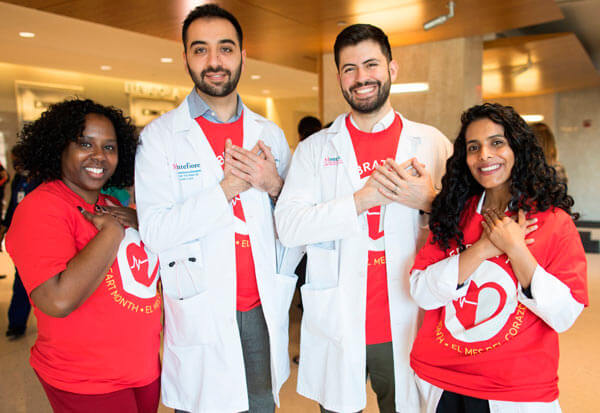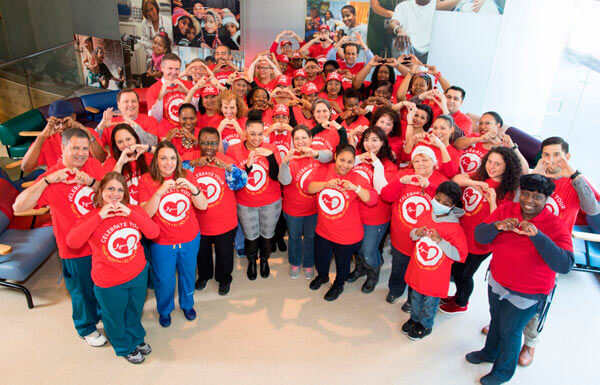February is American Heart Month and health professionals want Bronxites to know exactly what being heart healthy is all about.
The three biggest cardiovascular ailments doctors see with patients revolve around heart attacks, heart failure and atrial fibrillation, according to Dr. Mario Garcia, the co-director of the Montefiore Center for Heart & Vascular Care and professor and chief of the division of cardiology at Montefiore and Einstein.
Heart attacks usually occur when a blood clot blocks the flow of blood to the heart and are very common in the United States.
“Usually heart attacks occur in people who are in their 60s,” said Dr. Garcia, who’s career in cardiovascular care started in the 1980s. “But here in the Bronx we’re seeing it occur in people who are in their 30s and 40s.”
Heart failure is diagnosed when the heart is working, but not at 100 percent and is usually the result of recurring heart attacks or other major medical illnesses.
Atrial fibrillation is an irregular heart beat medical condition caused by sleep apnea, diabetes or obesity.
“Some people wait five or six hours before getting medical help [after they face initial symptoms of heart problems] which causes more problems in the long run,” said Dr. Garcia, who advised, if an individual has symptoms, specifically of a heart attack, they should get help within the first two hours so that arteries can be opened and prevent further damage.
Even after being discharged from medical facilities after suffering major heart conditions, Dr. Garcia said about one in five Bronxites return to the hospital with the same or similar problems within the first 30 days.
“Some people forget to take their medication or forget how to,” Dr. Garcia said. “Some with lower incomes don’t have full access to medical care.”
For everyone with cardiovascular illnesses, Dr. Garcia advised staying in constant contact with doctors.
Achieving heart health, however, can be as simple as changing your diet even if you have a genetic predisposition to cardiac conditions, like many patients who struggle with heart health, according to Jessica Shapiro, the associate Wellness Dietician at Montefiore Health System.
Poor diets can cause medical conditions like diabetes and obesity, which increase your chance of developing one or more of these heart conditions, according to Garcia and Shapiro.
The number of cases with people who have diabetes, in particular, are higher in the Bronx than any other borough.
The biggest offenders of heart health in the diet are foods that have animal fats, like processed foods, fast foods, or products with hydrogenated oils (trans fats), and sugar, according to Shapiro.
“Sugar not used for energy turns to fat in the body,” said Shapiro. “Sugar sweetened beverages are still a huge problem, but other foods we might consider as ‘healthy’ also have hidden sugars, like fruited yogurts.”
Shapiro recommended eating foods high in fiber, especially soluble fiber like those found in oats and beans, and eating foods high in omega 3 fatty acids, like those found in nuts, fish, and seeds.
“Most of our patients we see one-on-one and it’s hard to tell them to make big changes in their diet,” continued Shapiro. “So we look at their whole diet and pick small areas to make changes, like cutting out soda and controlling portion sizes.”
For those who are better off, Shapiro suggested making small changes like cooking your own meals for two days instead of eating out to control what goes into the food your eat.
Shapiro also warned to be careful buying foods that have healthy heart claims because not all of them are backed by science.
Cheerios, however, are high in soluble fiber, which is good, she mentioned.






















